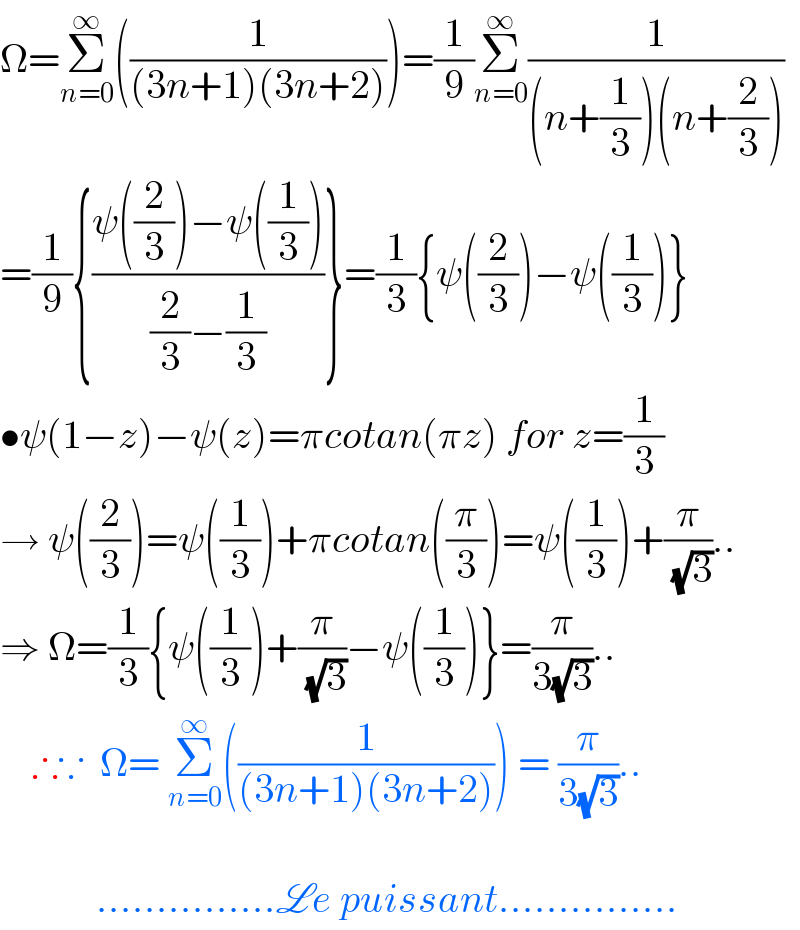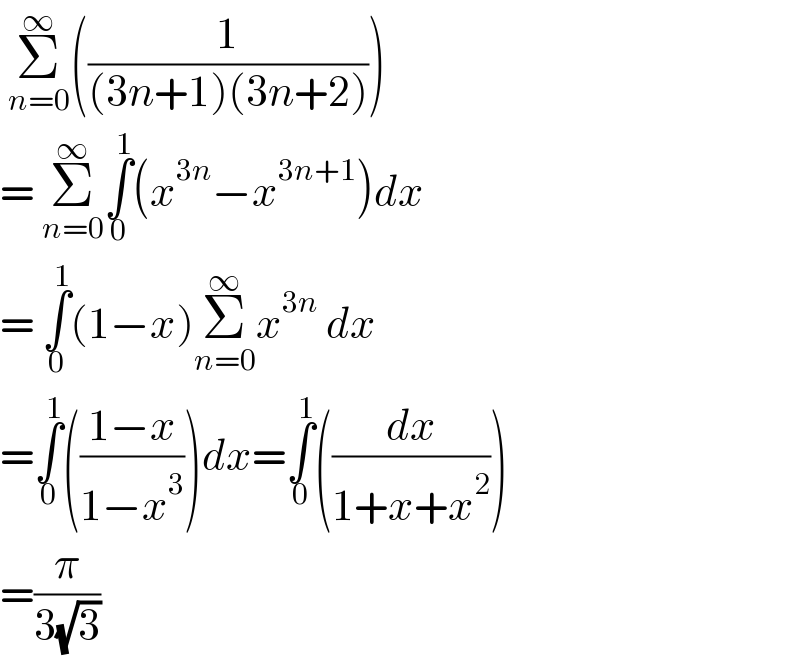
Question and Answers Forum
Question Number 157120 by cortano last updated on 20/Oct/21

Answered by puissant last updated on 20/Oct/21

Commented by Tawa11 last updated on 20/Oct/21

Answered by cortano last updated on 20/Oct/21

| ||
Question and Answers Forum | ||
Question Number 157120 by cortano last updated on 20/Oct/21 | ||
 | ||
Answered by puissant last updated on 20/Oct/21 | ||
 | ||
| ||
Commented by Tawa11 last updated on 20/Oct/21 | ||
 | ||
Answered by cortano last updated on 20/Oct/21 | ||
 | ||
| ||